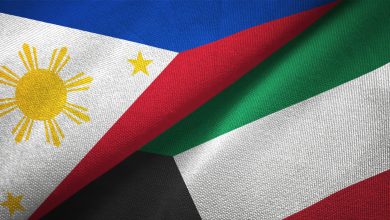For OFWs, the holiday season is a time to go all out, with festive gatherings among friends, family, and colleagues featuring generous spreads of rich Filipino dishes. In a multicultural country like the UAE, these feasts often include a variety of international cuisines.
Sometimes, they tend to prepare more than enough food, ensuring there’s plenty to share, often leaving leftovers for the days ahead—reheated and enjoyed all over again. But let’s be real, overeating—paired with the busy lifestyles of working abroad—can take a toll on health.
Filipino doctors based in the UAE have raised concerns about the risks of holiday binge eating, emphasizing the importance of moderation and exercise to celebrate healthily and avoid long-term complications. But now that the festivities are over, there’s no undoing the past—just take this time to commit to a healthier lifestyle moving forward.
Know the risks
As holiday parties and reunions fill the season, it’s important to be aware of the potential health risks associated with overindulgence.

Dr. Aileen M. Villanueva, a general practitioner at Mediclinic Al Noor Hospital in Abu Dhabi, warned that overeating—linked to high-calorie intake and reduced physical activity—can lead to long-term health risks, including obesity, which raises the likelihood of diabetes, heart disease, and certain cancers.
“It is essential for individuals with chronic health conditions to be mindful of their eating habits, especially during the holiday season. We should choose healthier food options, maintaining physical activities could help to prevent the risks linked with overeating,” Dr. Villanueva said.
But it’s not just weight gain to worry about. Dr. Villanueva also mentioned other health issues to watch out for, including hypertension, type 2 diabetes, elevated cholesterol, and gout.
Keep your health in check!
For Rica Lajom, an OFW for 8 years in the UAE, celebrating the holidays also involves a visit to the doctor to monitor her blood sugar and manage her health, ensuring she can fully enjoy the Noche Buena and Media Noche.
“I went to the doctor to check my blood sugar since I’m diabetic. I asked which foods were safe to eat and which ones to avoid. I even skipped rice for a week so I could enjoy the Christmas and New Year dishes without worry,” she said, noting that she continues to monitor her health even after the holidays.

This is the same advice Dr. Carlo Espinola, a general physician at NMC Medical Center in Satwa, shares with his patients every time the holiday season approaches.
“If possible, individuals with pre-existing conditions or those at high risk due to family history and sedentary lifestyles should schedule a general check-up weeks before the festivities,” Dr. Espinola suggested.
He emphasized the importance of recognizing early warning signs to maintain good health. Symptoms such as persistent headaches, dizziness, numbness, tingling, swelling in the extremities, and fatigue should not be ignored. Remember, early detection can prevent potential complications.
What’s next after binge eating?
So, you’ve enjoyed the food, the fun, and the festivities. Now it’s time to address the consequences of those extra servings. Here’s how you can get back on track:
1. Visit your doctor
Kick off the year by prioritizing your health. Dr. Villanueva noted that regular check-ups help catch high-risk conditions early, encourage healthier habits, and reduce stress, setting the stage for long-term well-being. Make sure that you’re utilizing your benefits as an employee—get regular check-ups while using your health insurance.
“Taking proactive steps towards health can improve mental well-being and reduce stress, which is important for OFWs often dealing with various challenges away from family,” Dr. Villanueva said.
2. Eat smarter with ‘Pinggang Pinoy’
Use “Pinggang Pinoy” as your guide to balanced eating! This visual tool from the Food and Nutrition Research Institute – Department of Science and Technology is designed to help individuals make nutritious food choices by showing the proper distribution of food on a plate. By filling half your plate with “glow food” or fruits and vegetables, a quarter with protein, and the remaining quarter with carbs, you can avoid overindulgence.
4. Move more, even with a busy schedule
With the UAE’s cool weather and numerous tracks for cycling and pedestrians, now is the ideal time to get outdoors. Dr. Espinola recommends at least 30 minutes of daily activity for better health. Simple exercises like walking or stretching improve circulation and help maintain a healthy weight.
“You don’t need to be a gym rat to stay healthy. Consistent and daily routines are still preferable. Do brisk walking for 30 minutes every day. That’s fast walking like you’re going to be late for work or for getting into the Metro. This is a good and practical way to make sure your heart stays healthy all year round,” Dr. Espinola said.
5. Hydrate and rest up
Flush out those extra servings by drinking plenty of water. Cut back on sugary or party beverages, and ensure you’re getting enough sleep to recharge both your mind and body.
Indulging during the holidays is nothing to regret, but a bit of discipline can help prevent health issues like high blood pressure and heart disease. Recovery doesn’t require drastic changes—focus on sustainable habits like adding vegetables, choosing healthier snacks, and staying active.
The post-holiday binge might have felt worth it at the time, but now it’s time to change the habits. By staying mindful of your health and making simple adjustments, you can enjoy a healthier and happier year ahead. After all, your health is your most valuable asset—treat it like one!




